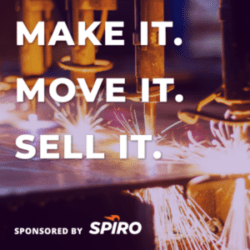Make it. Move it. Sell it.
We’re talking shop about the business side of making, moving, and selling products across the supply chain with leaders making their own rules, leveraging modern technology, and winning.

We’re talking shop about the business side of making, moving, and selling products across the supply chain with leaders making their own rules, leveraging modern technology, and winning.
